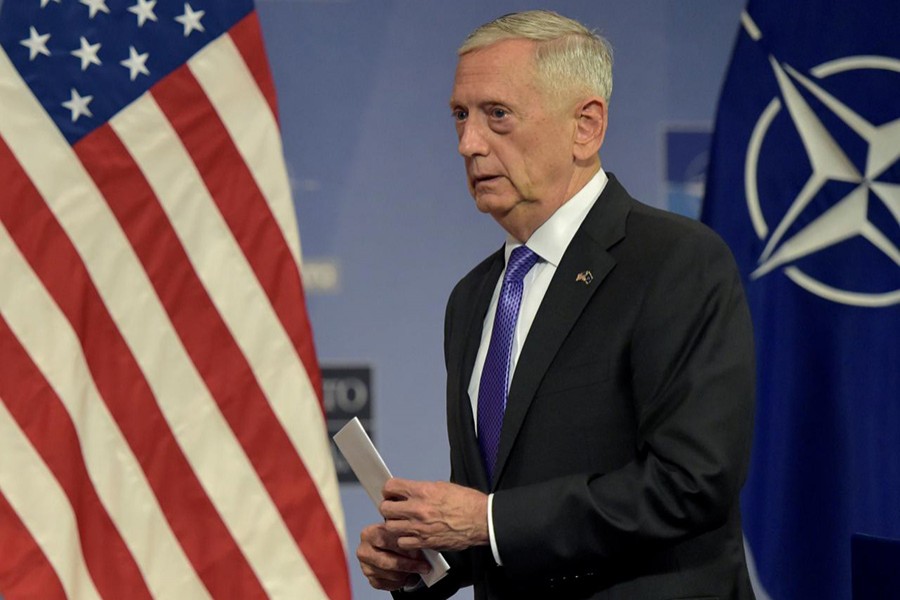US Defence Secretary Jim Mattis hinted on Monday about the existence of military options on North Korea that might spare Seoul from a brutal counterattack but declined to say what kind of options he was talking about or whether they involved the use of lethal force.
US Ambassador to the United Nations Nikki Haley said on Sunday the UN Security Council had run out of options on containing North Korea’s nuclear program and that the United States might have to turn the matter over to the Pentagon.
Any conflict on the Korean peninsula could easily result in a degree of bloodshed unseen since the 1950-53 Korean War, which claimed the lives of more than 50,000 Americans and millions of Koreans and ended in an armed truce, not a peace treaty.
Seoul is within artillery range of North Korea, which beyond nuclear and conventional weapons is also believed to have a sizable chemical and biological arsenal.
Asked whether there were any military options the United States could take with North Korea that would not put Seoul at grave risk, Mattis said: “Yes there are. But I will not go into details.”
Pressed on whether that might include so-called “kinetic” options that use lethal force, Mattis said: “I don’t want to go into that.”
Military options available to Trump range from non-lethal actions like a naval blockade aimed at enforcing sanctions to waging cyber attacks and positioning new US weaponry in South Korea, where the United States has 28,500 troops.
South Korea has raised the possibility of reintroducing nuclear weapons to the peninsula. Mattis acknowledged discussing that with his South Korean counterpart but declined to say whether that option was under consideration.
“We have open dialogue with our allies on any issue that they want to bring up,” he said.
US President Donald Trump has hinted that any use of lethal force against North Korea would be overwhelming, using phrases like “fire and fury” that evoke images of nuclear war.
MILITARY DRILLS
The US military said on Monday it had staged bombing drills with South Korea, flying a pair of B-1B bombers and F-35 fighter jets over the Korean peninsula, in a show of force against North Korea.
Still, despite heated rhetoric and posturing in the United States and North Korea, there has been no positioning of US military assets to suggest a military conflict is imminent.
Trump has vowed that North Korea will never be allowed to threaten the United States with a nuclear-tipped missile, but he has also asked China to do more to rein in its neighbor. China in turn favours an international response to the problem.
Mattis told reporters that he believed diplomacy and sanctions were so far succeeding in putting more pressure on Pyongyang.
“So, yes, it’s working,” he said.
Even as tensions rise, the United States and its allies have stuck to a hands-off policy when North Korea test-fires its missiles. Mattis confirmed that policy on Monday, saying it would not shoot down a North Korean missile unless it poses a direct threat to the United States or its allies.
He said Pyongyang’s calculus appeared to be designed to race forward with its missile programme, “without going over some kind of a line in their minds that would make them vulnerable.”


